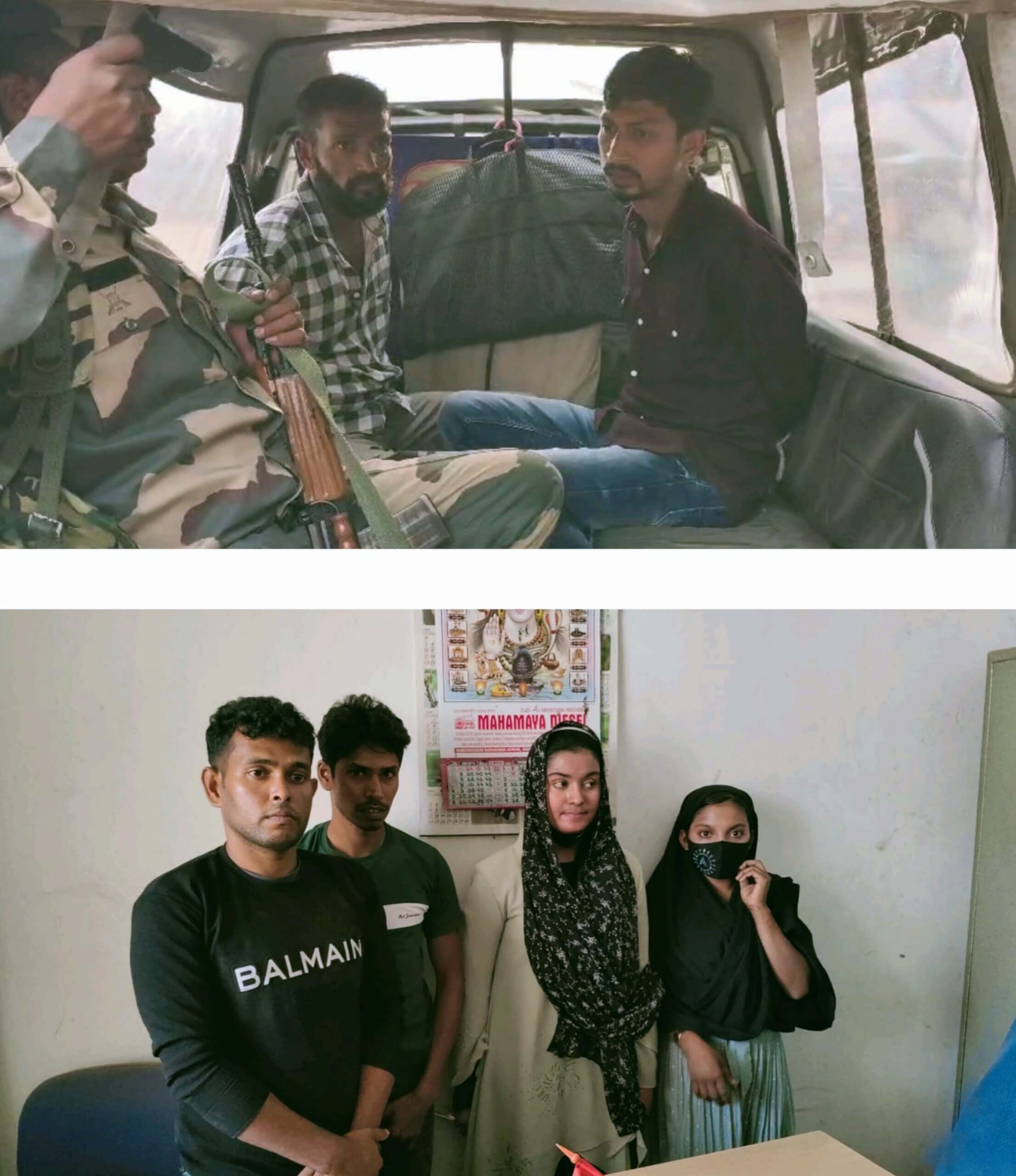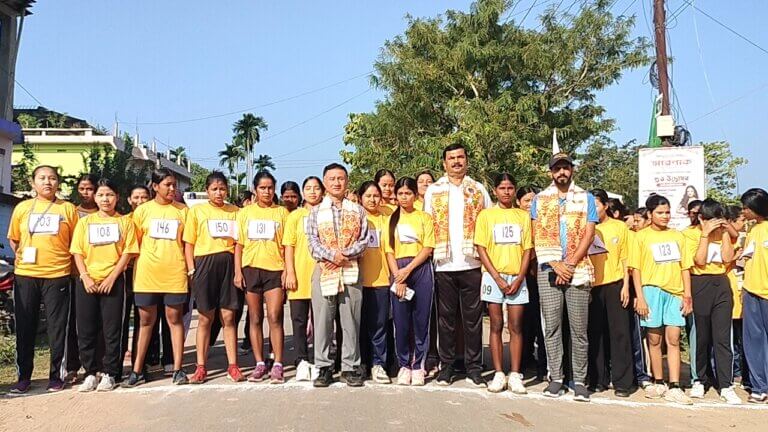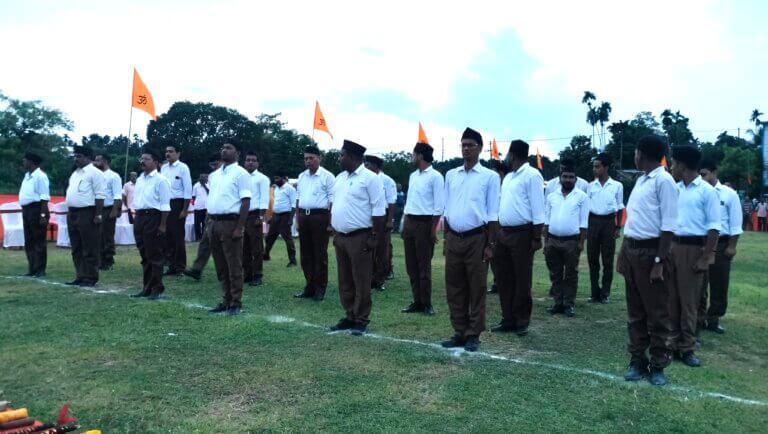
Oplus_131072
Illegal infiltration into Dharmanagar, North Tripura, is not new. However, the recent arrest of four Rohingyas and two Indian agents has once again highlighted the weaknesses in border security. Yesterday at 3 PM, acting on a tip-off, BSF personnel from the Kailashahar branch apprehended these six individuals from the ISBT area in Rajbari, Dharmanagar.
The arrested Rohingyas are Jahir Alam (32), Momtazul Haque (35), Minara Begum (18), and a minor girl (15). Though they are Myanmar nationals, they had been living in Rohingya refugee camps in Bangladesh. The Indian agents were identified as Abdul Monir (45) from Kailashahar, Unakoti district, and Kamrul Hossain (30) from Kumarghat.
One of the detainees revealed that they had paid ₹25,000 per person to cross the Kailashahar border illegally with the help of agents. Their destination was Delhi via Badarpur, where they planned to seek work. BSF had prior information about the illegal entry of some Bangladeshi nationals, based on which they conducted the operation.
However, several questions have arisen regarding this incident. Usually, after detention, suspected infiltrators undergo immediate medical examinations. But in this case, although the BSF apprehended them on March 14 in the evening, their medical check-up at RGM Hospital in Kailashahar was conducted only on March 15 at 11 AM. This delay has raised suspicions among the public.
Dr. Sumangal Sarkar of RGM Hospital confirmed that six individuals, including four men and two women—one of whom was a minor—were brought for a medical check-up by the BSF. After an initial health screening, they were released.
If border security remains lax, such incidents will continue to occur. Along with the active involvement of human trafficking networks, security loopholes are also becoming evident. Such illegal infiltrations not only pose a threat to national security but also create fear among local residents. This raises a crucial question—Is the administration taking adequate steps to strengthen border security? Is it not yet time for stricter surveillance and tougher measures to prevent such incidents?



